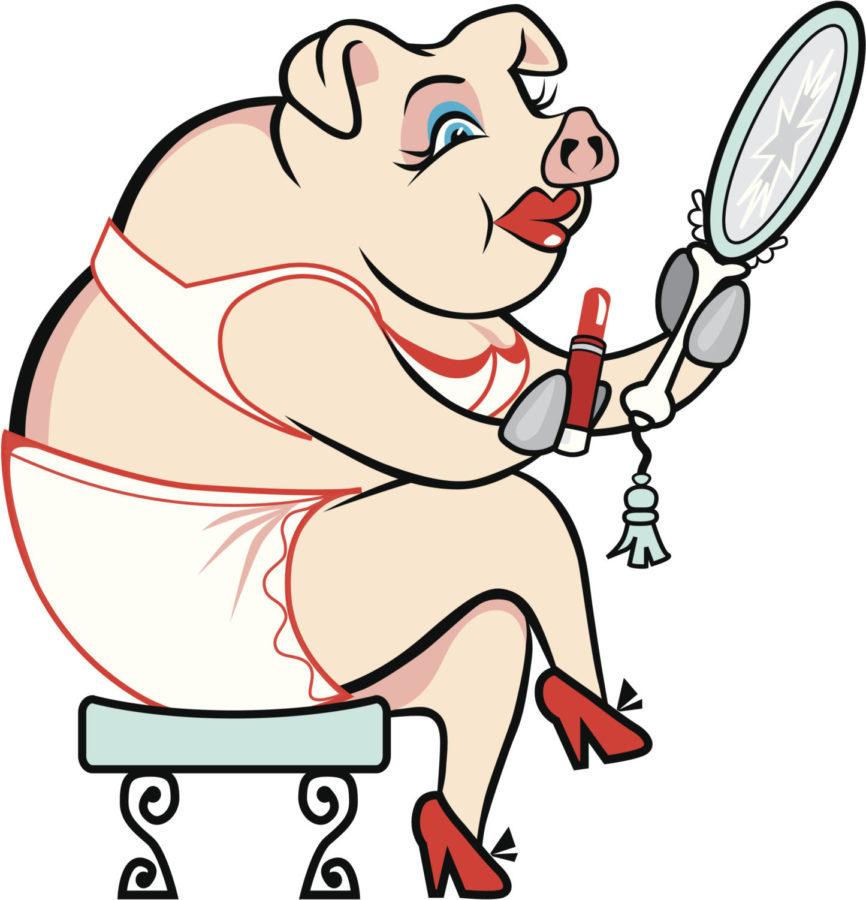Ward: End support of animal testing by using cruelty free cosmetics
April 2, 2015
There is an old saying that commonly swirls around the fashion industry that beauty is pain. But I am here to tell you that we are not the only ones who feel this pain. The animals these beauty products are being tested on feel the pain much more than we do.
Animal cosmetic testing includes skin and eye irritation tests where various chemicals to be used in cosmetics are rubbed on the skin or dripped into the eyes of cosmetic testing animals. They do this to try and determine if the chemicals cause birth defects, general illnesses or cancer. After this testing goes on for several weeks or even months and causes unalleviated pain, the animals are then killed either by asphyxiation, breaking of the spinal cord or decapitation.
As I write this I have the strongest desire I have ever had to throw out all of my cosmetic products because, based on a list I found, I know a good majority of the products that have served me well during the years are killing animals every day. A few companies on this list would be Maybelline, MAC, Bobbi Brown and CoverGirl. Neither drugstore products nor high-end cosmetics are above this atrocity, but then again, it seems that neither are we.
The beauty business is booming and it’s basically around every turn. The cosmetic industry made about $56.63 billion in revenue in the United States in 2014 and that’s because of us. We crave to have the latest look or emulate our favorite celebrity. We turn to social media platforms like Pinterest and YouTube for inspiration. Then after all this research we head out in search of the right product. To give you an idea of how popular the beauty industry has become for the everyday person, here are some shocking YouTube stats for you. Official beauty brand YouTube channels will upload 93 videos per channel while beauty bloggers will upload 255 videos per channel. The public has officially surpassed actual beauty companies, so what does that say about us?
It isn’t a secret that beauty companies have used animals as test subjects for years. The greater mystery is why we’ve let it carry on for as long as we have. My guess, mostly because I have been living this way until now, is that we ignore it because we’re afraid of the reality. For instance, in high school I was on our newspaper staff and we did a story on animal testing. I had all the information I needed to inform me of the atrocities and I ignored it because makeup is something I use on a daily basis. I was afraid of facing the fact that all the money I have spent on these products was in support of the torture of innocent animals. But that ignorance stops now and I think you all should join me.
The next time you head to Target or Ulta or Sephora to buy an overpriced lipstick, think about why it costs so unbelievably much. Animal testing isn’t cheap, the funds need to come from somewhere and that somewhere is you and your tax dollars. The National Institutes of Health uses 40 percent of its budget on animal testing and that equals about $16 billion of U.S. taxpayers’ money. The number was for 2010’s fiscal year, which means it has undoubtedly increased.
The $16 billion figure is huge, and one that can be difficult to to comprehend. This is why Peta came up with some uses in America that end up totaling $16 billion and are far more positive than killing helpless dogs, rabbits and cats. For example, $2.2 million could be given to seniors who go to bed hungry, $380,000 could go to hiring more teachers, $1.6 million could go to help homeless veterans, among other suggestions.
There is a multitude of things that could be done with the massive amounts of money that are currently being used to kill helpless animals, so why don’t we shift our focus to those causes? Doing this doesn’t mean we have to completely ditch our beauty habits. We simply need to start using products that have sworn off animal murdering, such as Lush Cosmetics, The Body Shop and Physicians Formula. You can also find a list of hundreds of others who are abstaining from this cruelty at www.globalanimal.org.







